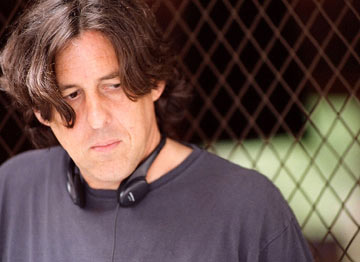Submitted by Jeff on Wed, 02/01/2006 - 12:17

For the scores of people who had long abandoned Saturday Night Live since its various “hey-days,” Lazy Sunday represented a return to form for the sketch comedy show. I haven’t watched SNL since I was 15, so I can hardly judge if Andy Samberg and Chris Parnell’s rap sketch is any funnier than what the show has been doing for the last ten years. But if for no other reason, the sketch’s forceful emergence on the internet – a tool that did not exist when the show “was funny” – suggests that SNL finally connected with its audience again. What is it about Lazy Sunday that’s so funny? What is it that makes it good? I’ve heard various interpretations, but none so infuriating as that of Slate’s Josh Levin.
According to Levin, Samberg and Parnell’s rap about going to see The Chronicles of Narnia is less significant for its resuscitation of life to SNL than it is for its reinvention of hip hop. Levin writes:
"…it’s notable that these moments of goofiness and whimsy are what make Lazy Sunday work as a rap song, not just a comedy sketch. It’s hard to think of a Top 40 hit that's similarly playful."
Submitted by Jeff on Mon, 01/30/2006 - 21:48
Cameron Crowe is not cool.


But since when did a filmmaker have to be cool? When did hipness and good art become synonymous? I suppose it happened some time around the premiere of Pulp Fiction, a film that was so much better than Forrest Gump that hipsters have been rolling their eyes at Hollywood and the Academy ever since. Under these auspices, I presume that the most influential filmmaker in the last fifty years must have been Jean-Pierre Melville, the director of such classics as Bob le flambeur and Le Samourai and the progenitor of what critics often refer to as the “birth of cool” in the 1950s. No doubt, Elvis had something to do with it as well.
If Cameron Crowe has never been cool – the square Richard Linklater – he wasn’t always so bullied. The cool kids tolerated Jerry Maguire and Almost Famous, even if those films did affirm the possibility of heterosexual love, and some of the cool kids even dug Say Anything (back when Cusack was a God among men). So when did Crowe become “uncool in the flesh”? Was it simply because Vanilla Sky sucked so much? More ambitious than his prior undertakings, Vanilla Sky committed two carnal sins: it was bad and uncommercial (and with Tom Cruise, no less). But with Elizabethtown, Crowe is back to his usual bag of tricks, combining screwball comedy, sentimentality, and voice-over narration – in short, living up to his reputation as a modern day Billy Wilder.
Pages